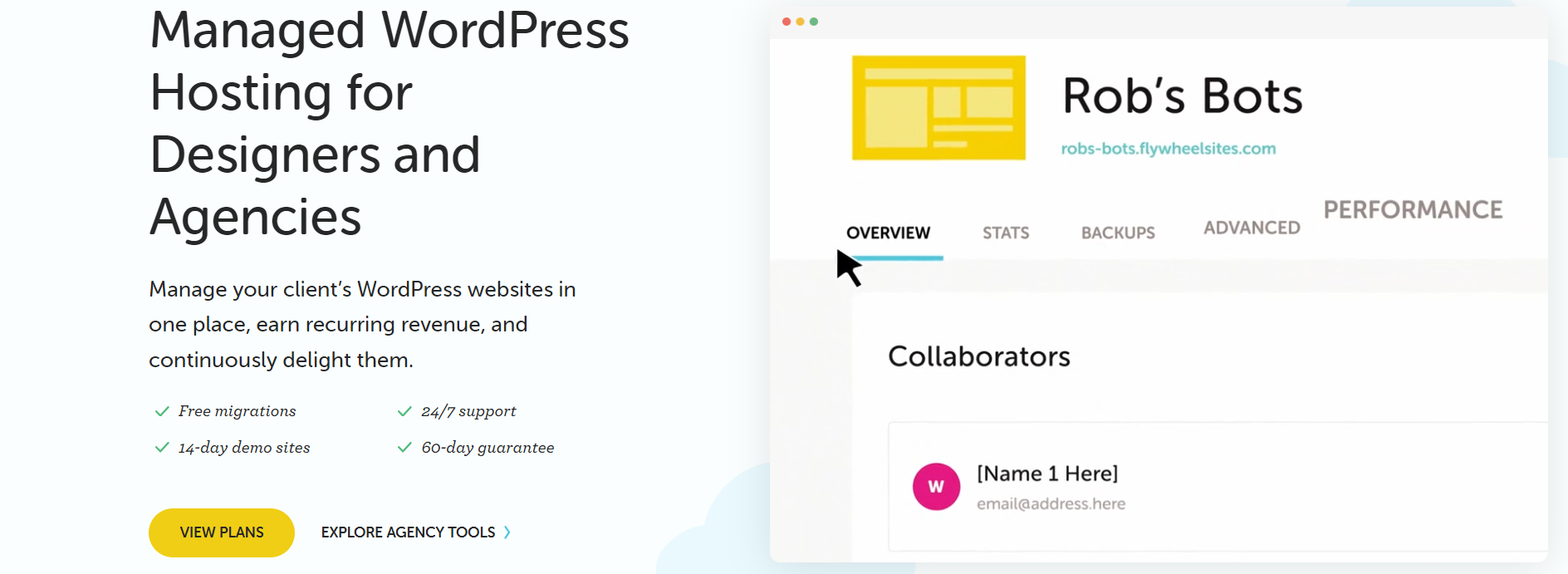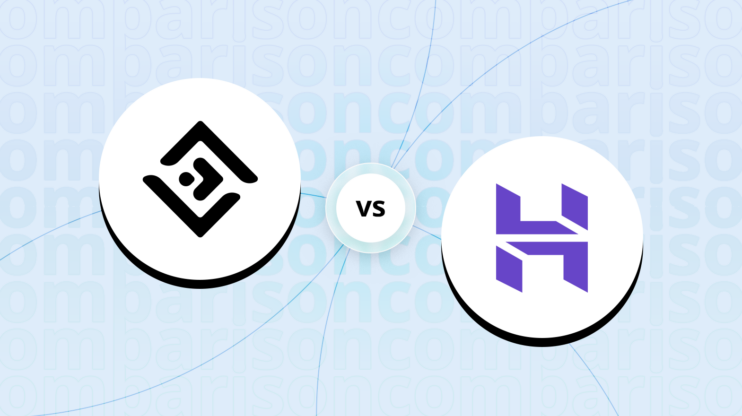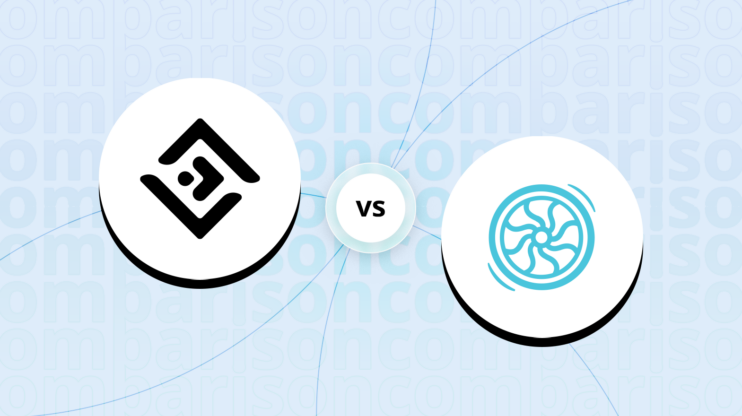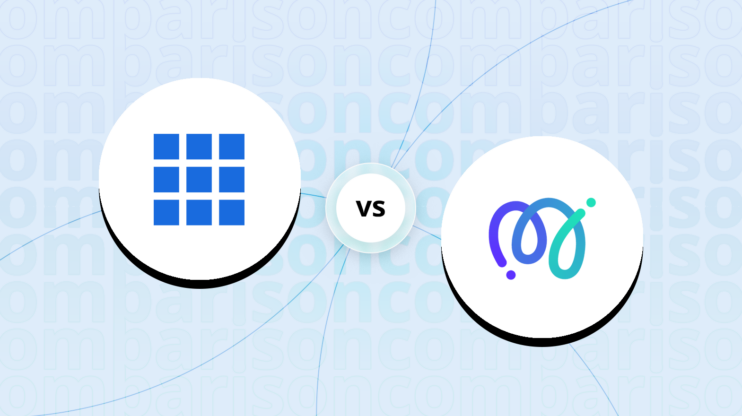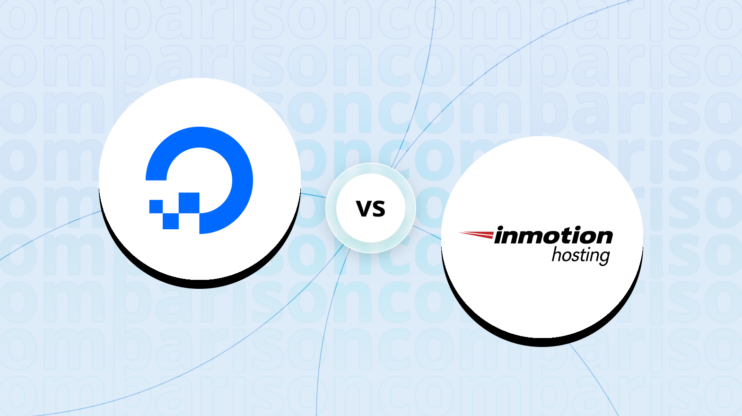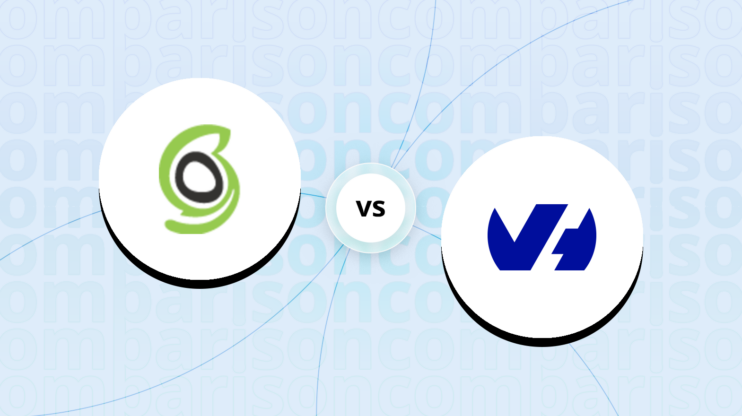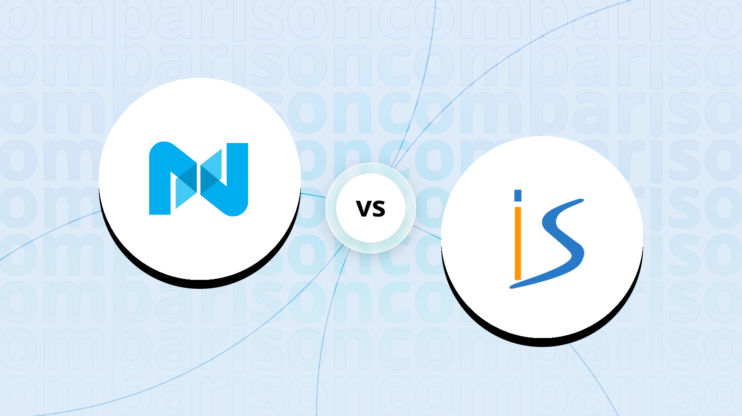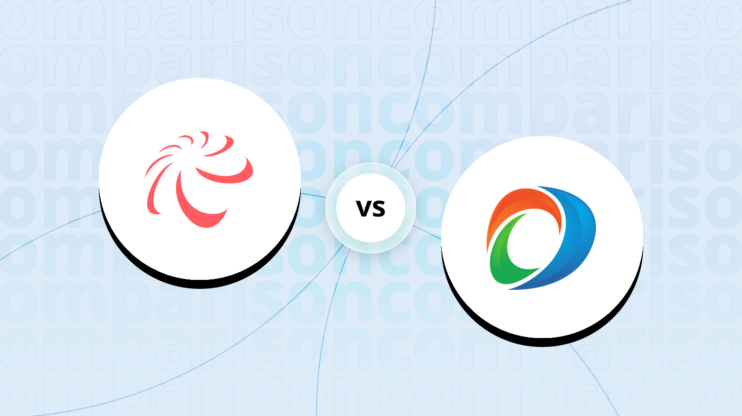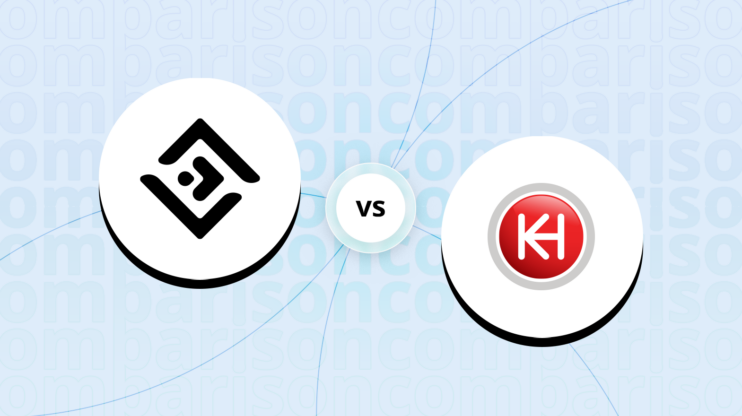Final verdict
Looking over Hostinger vs. Flywheel, both platforms excel in different aspects, making them suitable for varied user needs.
Hostinger (Overall grade: 8.7)
provides a strong balance of affordability, performance, and features. With hosting options including shared, cloud, WordPress, and VPS hosting, it caters to a wide range of users. Notable strengths include excellent uptime, fast response times, extensive security measures, and a comprehensive feature set like a custom-built control panel, free domain, SSL certificates, and an easy-to-use website builder. However, it lacks dedicated hosting and more specialized compliance certifications like HIPAA. Hostinger’s AI tools and global data centers further enhance its speed and reliability, making it an excellent value for users looking for comprehensive yet cost-effective hosting solutions.
Flywheel (Overall grade: 8.4)
offers a premium managed WordPress hosting experience tailored particularly for agencies and high-traffic websites. With superior uptime, fast servers powered by Google Cloud, and advanced caching solutions, it ensures efficient performance for WordPress sites. Flywheel excels with its workflow tools, dedicated account managers, and comprehensive security features which include malware removal and auto-healing technology. Despite its strengths, Flywheel’s limited hosting types, higher pricing, absence of email hosting, and lesser value in terms of storage and bandwidth compared to competitors may not appeal to users seeking more versatility or cost savings. However, its focus on developer-friendly tools and agency support makes it a strong contender for WordPress-centric professionals.
 Overall grade:8.7 |
 Overall grade:8.4 |
|
|---|---|---|
| Uptime and Availability | 9.2 | 9.7 |
| Hosting Performance | 9.0 | 8.2 |
| Hosting Security | 8.4 | 9.4 |
| Price | 8.8 | 8.1 |
| Hosting Features | 8.3 | 6.8 |
| Ease Of Setup | 9.0 | 8.9 |
| User Management | 8.2 | 7.8 |
| Customer Support | 8.3 | 8.5 |
| User feedback | 4.4/5 | 4.4/5 |
Hosting types offered
Both platforms provide a variety of hosting types, each designed to meet the different needs of users.
 |
 |
|
|---|---|---|
| Shared hosting | ||
| Cloud hosting | ||
| WordPress hosting | ||
| Ecommerce hosting | ||
| VPS hosting | ||
| Dedicated hosting |
Although both offer a variety of hosting plans tailored to different needs, in certain cases, one platform may prove to be more suitable.
Detailed comparison
Uptime and availability
Evaluates the average uptime statistics, uptime guarantee and overall availability of the hosting
provider
Score Components:
- Uptime percentage (30%): evaluates the uptime statistics in given period of time
- Uptime guarantee (20%): Assesses if the platform offers an uptime guarantee and
whether the actual uptime matches the promised guarantee. - General performance (25%): Evaluates how fast is the average response time and overall
it’s stability. - Responsiveness (10%): Adaptability to different devices and screen sizes.
- Availability (25%): Reflects the total downtime and number of outages.
 9.2
9.2
 9.7
9.7
🏆 Winner Flywheel: Flywheel offers near-perfect uptime with strong support and performance guarantees.
Flywheel promises a higher-than-standard 99.9% uptime backed by its SLA. In recent tests, it demonstrated 100% uptime over two weeks with an impressive 371ms average response time. Utilizing Google Cloud servers and CDN, Flywheel ensures high availability and performance. The 60-day money-back guarantee enhances customer confidence.
Hostinger also offers a solid 99.97% average uptime over six months and 100% in a short-term test. Its response times are slightly higher, ranging between 450ms and 625ms. Key features include enhanced DDoS protection and Cloudflare-protected nameservers. Hostinger’s 30-day money-back guarantee backs their hosting services.
Hosting performance
Score Components:
- Hosting speed (30%): This includes SSD quality, Load times, PageSpeed score ranges,
additional information on website speed, built-in plugins for performance enhancement, available caching
methods, and CPU/RAM options - CDN (20%): Considers whether CDN is available or not, whether it’s free or paid, and
the quality of the CDN service - Available data centers (30%): Evaluates the number of data centers and their locations
globally. - Scalibility (20%): Looks at whether elastic scaling is available, the process required
to scale (manual upgrade vs. automatic scaling), the presence of dedicated servers, and the costs
associated with scaling.
 9.0
9.0
 8.2
8.2
🏆 Winner Hostinger: Fast, reliable performance with global data centers and extensive features.
In terms of general performance, Hostinger stands out with its high-speed CPUs and NVMe storage, ensuring rapid website loading and efficient data access. It provides 99.9% uptime, aided by LiteSpeed Web Servers and LSCWP Cache Plugin, which enhance speed and reliability. Hostinger CDN improves speed scores with features such as code minification and image optimization. Data centers spread across Europe, Asia, North America, and South America guarantee quick access for users worldwide. Flywheel also offers fast servers with managed caching and a CDN powered by Fastly, ensuring quick page loads. However, its reliance on monthly performance insights and auto-healing technology for improving site speed makes its approach more reactive rather than proactive.
Website speed
When comparing website speed, Hostinger’s robust setup featuring HTTP/3 and IPv6, along with object and LiteSpeed caching, makes it exceptionally fast. Flywheel’s managed caching at the server level also enhances speed, but it’s tailored more for WordPress-specific optimizations rather than general usage. Hostinger’s AI tools and Global Data Centers further boost performance to ensure minimal latency across various regions. Flywheel’s CDN and auto-healing technology contribute positively, yet Hostinger’s comprehensive array of speed-enhancing features set it apart.
Scalability
Hostinger offers versatility with its cloud plans, allowing for adjustments based on website needs. Upgrading plans provides clear enhancements in storage, RAM, and CPU cores. The scaling process with Hostinger is straightforward; higher-tier plans come with better resources. Flywheel’s approach, while it does offer dedicated resources and custom plans for high-traffic sites, often involves additional costs for overages and scaling. The specifics of automatic scaling remain unclear, implying a more manual approach to resource management compared to Hostinger’s structured tier upgrades.
Hosting security
and regulatory requirements
Score Components:
- Technical security measures (40%): This includes encryption, firewalls, DDoS
protection, secure configurations, server monitoring, access control and availability of security addons
(e.g Sitelock security). - Operational security measures (30%): Encompasses data privacy, backups and data
redundancy. - Compliance and certifications (20%): Adherence to legal and regulatory requirements
(e.g., GDPR, HIPAA) and possession of certifications (e.g., ISO 27001, SOC 2). - Business and reliability (10%): Factors in the provider’s reputation, uptime
guarantees, and customer support.
 8.4
8.4
 9.4
9.4
🏆 Winner Flywheel: Flywheel provides a robust security environment with several advanced features and comprehensive compliance measures.
Technical security measures:
Hostinger offers continuous server monitoring, firewall protection, and advanced security modules like mod_security and Suhosin PHP hardening. It also provides enhanced DDoS protection and uses a Cloudflare protected nameserver. Flywheel, on the other hand, employs Fastly WAF for layer 7 attack protection and intelligent IP blocking across all sites. Flywheel also offers features like auto-healing technology and free malware removal, providing a higher level of automated security.
Operational security measures:
Hostinger has a dedicated internal security team, responsible disclosure policy, and stringent internal policies to maintain security standards. Regular vulnerability scans and penetration testing are part of their practices. Flywheel also maintains a high level of operational security with plugin security alerts and role-based permission models, allowing controlled data and algorithm sharing. Both offer 24/7 customer support, but Flywheel includes additional operational advantages like free migrations and nightly backups stored for 30 days.
Compliance and certifications:
Hostinger complies with GDPR but does not provide environments intended for HIPAA or PCI compliance. It also lacks ISO 27001 and SOC certifications. Flywheel offers more comprehensive compliance, meeting GDPR, HIPAA, 21 CFR Part 11, GCP, and holds a SOC 2 audit certification, demonstrating a higher commitment to regulatory compliance and security.
 |
 |
|
|---|---|---|
SSL certificate |
Free SSL |
Free SSL, Third-Party SSL |
Additional security features |
Enhanced DDoS, Cloudflare |
Fastly WAF, Intelligent IP Blocking, Plugin Security Alerts, Auto-Healing |
PHP versions |
Custom Control |
PHP 8.1 Ready |
GDPR compliance |
Yes |
Yes |
HIPAA compliance |
Not intended |
Yes |
PCI compliance |
Not intended |
Not specified |
Hosting features
Score Components:
- Domains (20%): Assesses the availability of a free domain, domain purchase options, and
pricing - Email (15%): Considers if the provider offers full email hosting, or is reselling
third-party service, and if the email is only transactional or not - Website builder (15%): Checks if website builder is available, and it’s user
friendliness and overall the level of customization allowed. - Staging environment (20%): Determines if a staging environment is available, allowing
for testing changes before going live. - FTP & SFTP accounts (10%): Evaluates if and how easily users can access FTP and
SFTP accounts - Git and SSH access (20%): Assess whether Git is integrated into the hosting service and
if SSH access is provided
 8.3
8.3
 6.8
6.8
🏆 Winner
Hostinger: A hosting solution that offers robust features and excellent value for a wide range of users.
Hostinger provides a custom-built hPanel control panel that is user-friendly and accessible for beginners while also catering to more advanced users with its extensive developer tools like SSH access, Git integration, and WP-CLI. Hostinger includes a free domain and SSL with most plans, which adds value right off the bat. Their intuitive drag-and-drop website builder, enhanced with AI features, allows for easy site creation and customization, making it an appealing choice for users who appreciate simplicity and efficiency. Additionally, Hostinger stands out by offering daily and on-demand backups, free automatic website migration, and multiple PHP versions, ensuring a secure and flexible hosting environment.
Flywheel, on the other hand, focuses on managed WordPress hosting. They deliver tailored solutions for WordPress users with features such as FlyCache for enhanced performance and managed caching, demo sites for testing, and a wide range of workflow tools including Blueprints and staging sites. Flywheel’s platform offers advanced security measures and nightly backups stored for 30 days, aiming to keep your site secure and maintain its integrity. A unique feature is their auto-healing technology, which addresses service failures automatically. Their pricing includes transparent overage charges, and they have various support options, including 24/7 chat and dedicated account managers, making them a solid choice for businesses heavily reliant on WordPress.
 |
 |
|
|---|---|---|
Free Domain |
Yes |
No |
Free SSL |
Yes |
Yes |
Email Hosting |
Yes |
No |
Website Builder |
Yes |
No |
Staging Environment |
No |
Yes |
FTP & SFTP Accounts |
Yes |
Yes |
Git and SSH Access |
Yes |
Yes |
Free Backup |
Yes |
Yes |
Money Back Guarantee |
30 days |
60 days (limited plans) |
a location.
As a result in rare cases the features mentioned here can differ from the ones you see on their websites.
Both providers support a range of users from beginners to experts with user-friendly website builders and WordPress staging areas. However, in terms of developer tools, both Hostinger and Flywheel offer robust options including SSH access, support for multiple programming languages, and Git for version control, thus appealing to developers looking for advanced capabilities.
Email services:
Hostinger includes email hosting, which allows users to manage their email campaigns and responses directly through their hosting account. They support various transactional email capabilities without any specific limits noted. Flywheel does not offer internal email hosting but recommends using third-party providers like Google Workspace for comprehensive email needs. This approach might suit users who prefer separating their email services from their hosting, especially with reliable providers like Google.
Price
Score Components:
- Plan value (40%): What each pricing tier offers.
- Transparency and clarity (30%): Clearness of pricing structures.
- Flexibility of plans (20%): Range of options to suit different budgets.
- Hidden costs (10%): Additional expenses not included in the plan.
 8.8
8.8
 8.1
8.1
🏆 Winner Hostinger: Hostinger offers a comprehensive range of plans with more value-packed features, making it a strong contender for various hosting needs.
Evaluating the pricing of plans among various hosting providers can be complex due to their differing pricing and renewal strategies. Additionally, certain plans require annual commitments, which adds to the difficulty of making comparisons. The prices listed are based on monthly commitments; plans requiring annual commitments are indicated. Additionally, although some providers offer identical plans for WordPress and shared hosting, we have created separate tables for each to enhance clarity.
When comparing Hostinger and Flywheel, Hostinger offers a wider range of hosting plans at competitive prices. Hostinger’s Premium Web Hosting plan starts at $2.99/month with features like 100 websites and 100 GB SSD storage, while Flywheel’s Tiny Plan is priced higher at $13/month for just 1 WordPress site and 5 GB storage. Hostinger also provides daily and weekly backups in some plans, compared to Flywheel’s nightly backups. For enterprises, Hostinger’s top cloud hosting plan is priced at $29.99/month, providing extensive resources and support, in contrast to Flywheel’s Agency Plan at $242/month with different bandwidth and storage capacities.
 |
 |
|---|---|
|
Premium $7.99/mo
100 websites, WordPress multisite, 100 domain-based email addresses, WordPress themes, over 100 subdomains Value for price:9.0
|
Tiny $13/mo
1 WordPress site, 5GB storage, 20GB bandwidth, includes SSL, Nightly Backups Value for price:7.5
|
|
Business $8.99/mo
100 websites, WordPress multisite, 100 domain-based email addresses, WordPress themes, over 100 subdomains Value for price:8.8
|
Starter $25/mo
1 WordPress site, 10GB storage, 50GB bandwidth, includes SSL, Nightly Backups Value for price:7.0
|
|
Cloud Startup $19.99/mo
300 websites, WordPress multisite, 100 domain-based email addresses, WordPress themes, over 100 subdomains Value for price:8.5
|
Freelance $96/mo
up to 10 sites, 20GB storage, 200GB bandwidth, includes SSL, Nightly Backups Value for price:6.5
|
| N/A |
Agency $242/mo
up to 30 sites, 50GB storage, 500GB bandwidth, includes SSL, Nightly Backups Value for price:6.0
|
 |
 |
|---|---|
|
Premium $7.99/mo
100 websites, 100 GB SSD storage, unlimited bandwidth, includes domain, SSL Value for price:8.8
|
N/A |
|
Business $8.99/mo
100 websites, 200 GB NVMe storage, unlimited bandwidth, includes domain, SSL Value for price:9.0
|
N/A |
|
Single $3.99/mo
1 website, 50 GB SSD storage, 100 GB bandwidth, includes SSL Value for price:7.5
|
N/A |
| N/A | N/A |
 |
 |
|---|---|
|
Cloud Startup $19.99/mo
300 websites, 200 GB NVMe storage, free domain, unlimited bandwidth Value for price:8.5
|
N/A |
|
Cloud Professional $32.99/mo
300 websites, 250 GB NVMe storage, 6 GB RAM, 4 CPU Cores, unlimited bandwidth Value for price:9.0
|
N/A |
|
Cloud Enterprise $54.99/mo
300 websites, 300 GB NVMe storage, 12 GB RAM, 6 CPU Cores, unlimited bandwidth Value for price:9.2
|
N/A |
| N/A | N/A |
Enterprise plans
Hostinger’s Cloud Enterprise plan at $29.99/month is suited for enterprises needing high storage, RAM, and CPU cores, with unlimited websites and bandwidth, making it a cost-effective option. Comparatively, Flywheel’s Agency Plan at $242/month offers up to 30 sites, 50GB storage, and 500GB bandwidth, making it less competitive in terms of price-to-feature ratio for large-scale operations.
Ease of setup
platform.
Score Components:
- Site migration (25%): Assesses whether the provider offers tools for site migration,
either automated or manual, and whether these services are free or require a fee. - Admin panel usability (35%): Evaluates the type of admin panel provided, such as the
standard cPanel or a custom solution, focusing on its accessibility and user-friendliness for both
technical and non-technical users. - Setup features (20%): Examines the availability and ease of use of various setup
features, including FTP accounts, file managers, email account setup, PHPMyAdmin, and easy CDN
configuration. - Help center quality (20%): Measures the quality and accessibility of the provider’s
help center resources, including articles and tutorials.
 9.0
9.0
 8.9
8.9
🏆 Winner Hostinger: Hostinger provides an easy and user-friendly web hosting experience, making it ideal for both beginners and seasoned web developers.
Hostinger offers a custom-built admin panel called hPanel, which is specifically designed to be intuitive and accessible. With its streamlined interface, users can easily perform tasks such as setting up professional email addresses, installing content management systems, and using the website builder without needing any prior technical expertise. The admin panel includes over 100 one-click app installations and built-in AI tools that assist with various tasks, ensuring a smooth and efficient setup process. Automated updates for popular applications like WordPress further enhance the user experience.
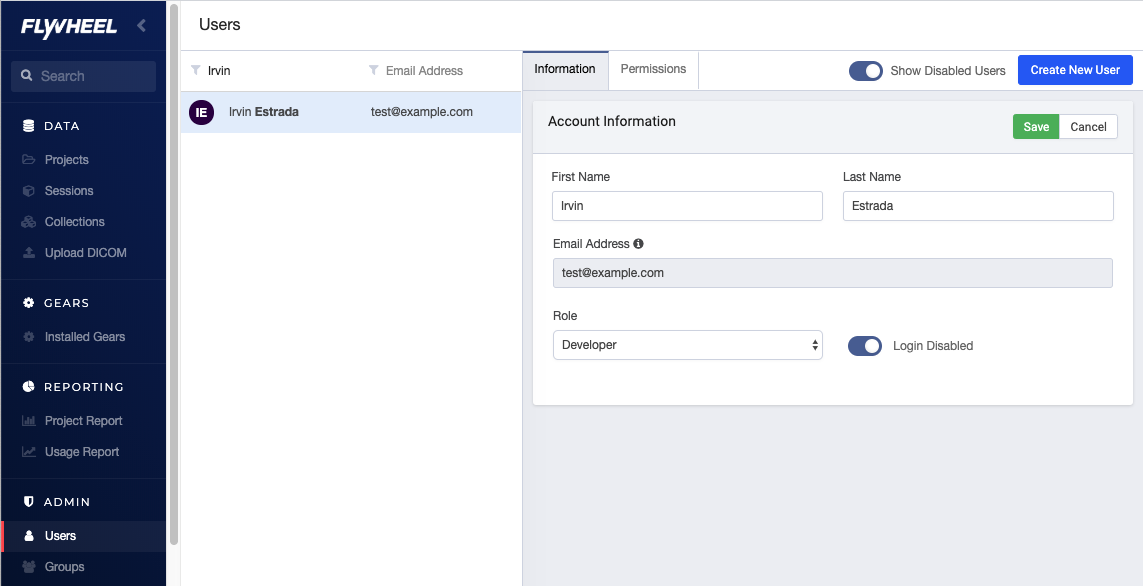
Flywheel, on the other hand, provides a local development environment for developing WordPress sites. Users can test new ideas in staging sites before going live and use blueprints to save an existing site’s theme and plugins as templates for future projects. Flywheel’s control panel enables site cloning, offering a practical way to replicate sites for new projects or demo purposes. While it also supports non-technical users, its features are particularly appealing to developers who frequently work on multiple WordPress sites.
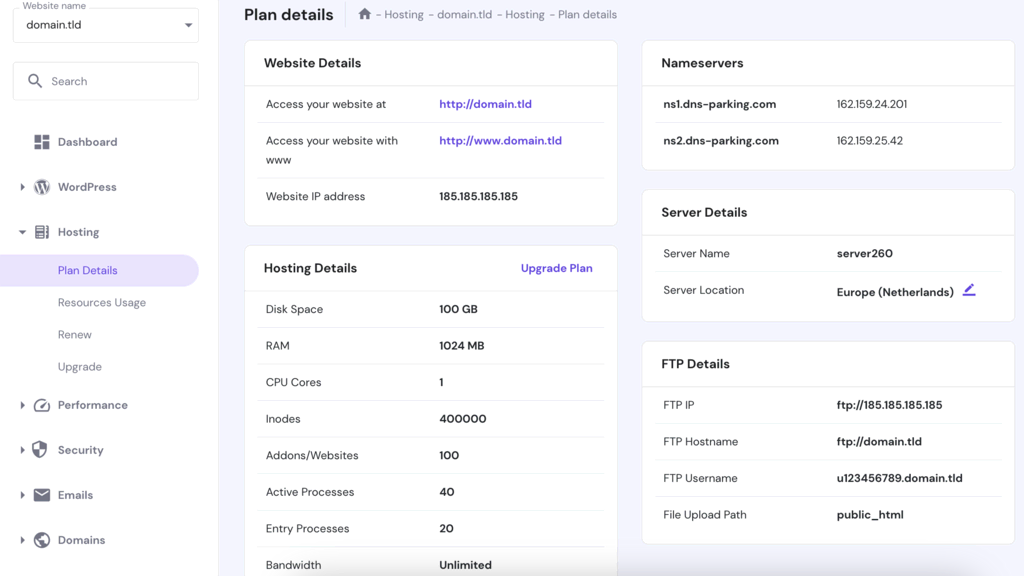
Both Hostinger and Flywheel offer free website migration services. Hostinger provides fully automated website migration with no downtime, making it seamless for users to switch to their platform without any hassle. Flywheel also offers free migrations, allowing users to transfer their existing sites without incurring any extra costs. Flywheel’s migration dashboard helps manage and monitor migrations effectively, adding an extra layer of convenience.
Hostinger and Flywheel both excel in providing extensive help center resources. Hostinger offers 24/7 multilingual support, along with a comprehensive help center that includes tutorials, video guides, and detailed articles covering a wide range of topics from basic setup to advanced configuration. Flywheel also provides 24/7/365 chat support and phone support during business hours. Their help documentation is thorough and includes guides on getting started, site management, and developer tools. Flywheel’s additional resources like ebooks, videos, and case studies further support users in maximizing the platform’s features.
User management
accessibility.
Score Components:
- Role customization (40%): Flexibility in creating and defining user roles and
permissions. - Ease of management (30%): User interface and tools for managing users.
- Access control (20%): Effectiveness of access control measures for different user
levels. - Scalability (10%): Ability to manage a growing number of users efficiently.
 8.2
8.2
 7.8
7.8
🏆 Winner
Hostinger: A comprehensive and efficient user management system with easy client onboarding and centralized control.
When comparing Hostinger and Flywheel in terms of managing user roles, permissions, and accessibility, both offer strong options though with different focuses. Hostinger provides a more streamlined approach to adding new clients through their hPanel, allowing users to quickly add or request access with specified access levels. Flywheel, in contrast, offers flexibility through Collaborator access, with nearly everything an owner can do except for managing billing, deleting or resetting a site. Both systems allow for efficient user role creation and permissions setting, yet Hostinger’s defined access levels offer built-in simplicity that might be preferable for users seeking straightforward management, while Flywheel offers broader control options for experienced users.
Hostinger’s hPanel interface is user-friendly, guiding users through steps with clear labels such as “Account Sharing” and “Manage Domains”. This makes task completion intuitive for both novices and experienced users. The centralized dashboard features for site and domain management reflect well-thought design principles. Flywheel’s Flywheel dashboard also provides a smooth user experience, granting collaborators full access to site management settings, SFTP, and database management. Flywheel users can appreciate the fluidity of moving between site management functions, though it might appear complex to those new to hosting.
Regarding access control measures and the ability to handle a growing user base, Hostinger excels with its systematic approach. By defining specific roles and restrictions clearly, Hostinger ensures that users only access what they need. This makes managing a growing client list efficient without compromising security. Flywheel’s approach allows Collaborators extensive permissions, which might be useful in a team-centric environment. However, the broader scope of permissions could potentially introduce security risks if not tightly managed. Both providers show a strong capability to manage user growth, but Hostinger’s built-in safeguards offer an extra layer of security.
Hostinger user roles table:
| Role | Description | Access highlights |
|---|---|---|
| Manage services | Modify files and websites, manage VPS, and change other hosting-related settings. | Can manage services but cannot modify payment methods or invite others. |
| Manage services and make purchases | Includes all “Manage services” permissions plus the ability to purchase new plans | Can purchase new hosting plans or domains with an already added payment method. |
Flywheel user roles table:
| Role | Description | Access highlights |
|---|---|---|
| Collaborator | Full access to site management within Flywheel dashboard and via SFTP, except billing | Can view site on Flywheel, add/remove other collaborators, manage site settings and database, access WP Admin. |
Customer support
hosting provider.
Score Components:
- Support communication channels (30%): Measures the variety of customer support types
provided (live chat, chatbot, email, phone, etc.) - Availability (20%): Assesses the availability hours for each channel, including 24/7
support options. - Technical support quality (30%): Assesses whether the provider offers comprehensive
technical support, including hardware upgrades (e.g., HDD to SSD), software installations, and web
server configuration changes. - Enterprise support (20%): Checks if there are dedicated or priority support services
for enterprise-level customers.
 8.3
8.3
 8.5
8.5
🏆 Winner Flywheel: Flywheel offers exceptional customer support, including round-the-clock services and personalized solutions.
 |
 |
|
|---|---|---|
Phone support |
||
Live chat support |
||
Chatbot |
||
Email/ticket support |
||
Enterprise support (dedicated agent, priority support) |

Hostinger provides 24/7 live chat support, email support for various inquiries, and a comprehensive knowledge base with tutorials. Their Academy offers video tutorials, and they have priority support with specific plans. Hostinger’s customer service team speaks multiple languages and responds quickly, resolving issues in under 3 minutes.
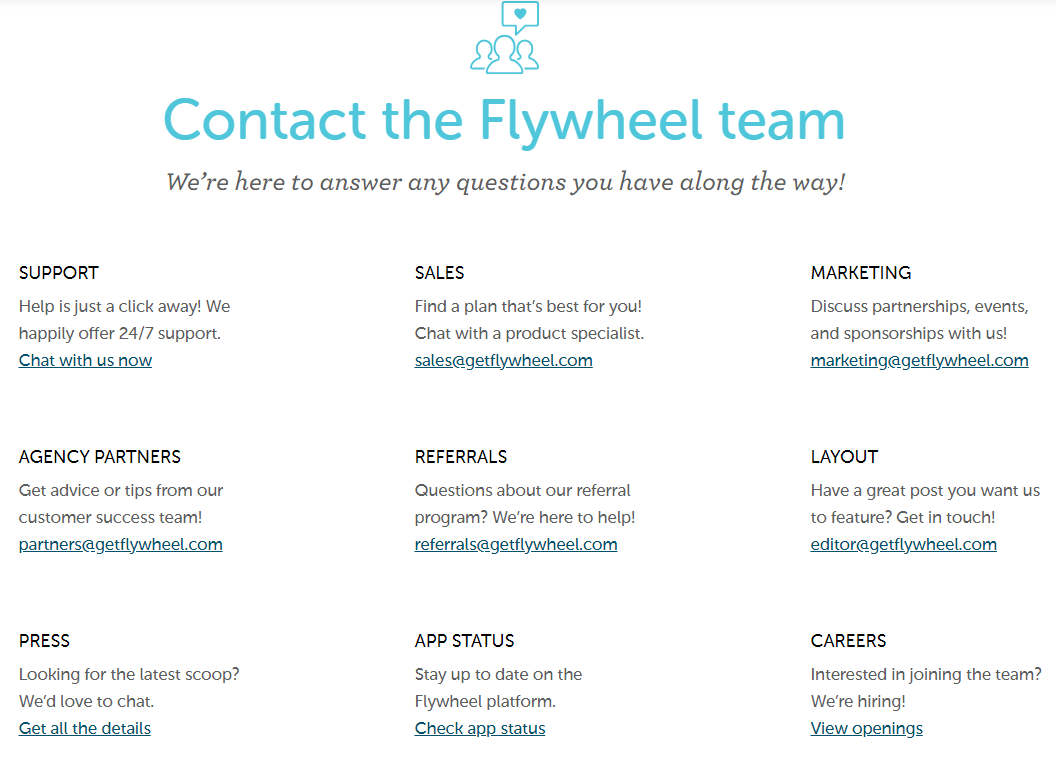
Flywheel, on the other hand, goes the extra mile with 24/7 chat support, phone support during business hours, and email/ticket support. They offer a migration dashboard, dedicated account managers, managed plugin updates, and performance insights. Flywheel also supports free migrations, 60-day money-back guarantees, and additional resources such as eBooks, help docs, and demo sites.
User feedback
Hostinger receives high praise for its user-friendly interface, competitive pricing, and robust performance. Customers appreciate the wide range of features, including seamless website migration, the intuitive hPanel, and excellent uptime. The standout feature, consistently mentioned across reviews, is the exceptional and responsive customer support available 24/7 via live chat, although some users express a desire for phone support. On the downside, a few customers report issues with renewal pricing, occasional slow support response times, and the limitations of the lower-tier plans.
Flywheel is highly regarded for its intuitive user interface, efficient WordPress management, and reliable speed and performance. Customers appreciate the ease of site migration, robust support, and included features like SSL and backups. However, some users highlight concerns over recent pricing changes, slower customer service response times, and issues with email limits and staging environments. Despite a few drawbacks, Flywheel is praised for its agency-oriented focus, making it a strong choice for professionals managing multiple client websites.
FAQ
Which platform is better suited for hosting WordPress websites?
Flywheel is particularly tailored for managed WordPress hosting and offers workflow tools, dedicated account managers, and features like FlyCache for optimized performance. Hostinger also provides robust WordPress hosting with easy setup, free SSL, and comprehensive security features. Both platforms excel in WordPress hosting, but Flywheel’s specialized tools make it particularly strong for agencies and professionals.
Which hosting service offers better security features?
Hostinger offers continuous server monitoring, firewall protection, and advanced security modules like DDoS protection and Cloudflare-protected nameservers. Flywheel provides Fastly WAF, intelligent IP blocking, auto-healing technology, and free malware removal, making it superior in automated security measures. Both platforms are strong, but Flywheel’s advanced features give it an edge.
Which platform offers better customer support?
Hostinger offers 24/7 live chat support, email support, and a comprehensive knowledge base with tutorials. Flywheel excels with 24/7 chat support, phone support during business hours, and dedicated account managers for personalized help. Both provide robust support, but Flywheel offers more personalized solutions.
Which hosting service offers more scalability options for growing websites?
Hostinger offers scalable cloud plans that allow for easy adjustments in storage, RAM, and CPU cores, making the scaling process straightforward. Flywheel provides dedicated resources for high-traffic sites but often involves additional costs for overages and scaling. Hostinger’s structured tier upgrades offer more versatile scaling options for growing websites.
Which hosting service offers better security features?
Hostinger offers continuous server monitoring, firewall protection, and advanced security modules like DDoS protection and Cloudflare-protected nameservers. Flywheel provides Fastly WAF, intelligent IP blocking, auto-healing technology, and free malware removal, making it superior in automated security measures. Both platforms are strong, but Flywheel’s advanced features give it an edge.
What are the major differences in pricing and value between hostinger and flywheel?
Hostinger offers a wider range of hosting plans at competitive prices, like the Premium Web Hosting plan starting at $2.99/month. Flywheel’s plans start higher, such as the Tiny Plan at $13/month for just 1 WordPress site. Hostinger generally provides more features and better value for the price, making it a cost-effective choice compared to Flywheel.
The making of this blog
We followed a clear, step-by-step process to write and research this article.

